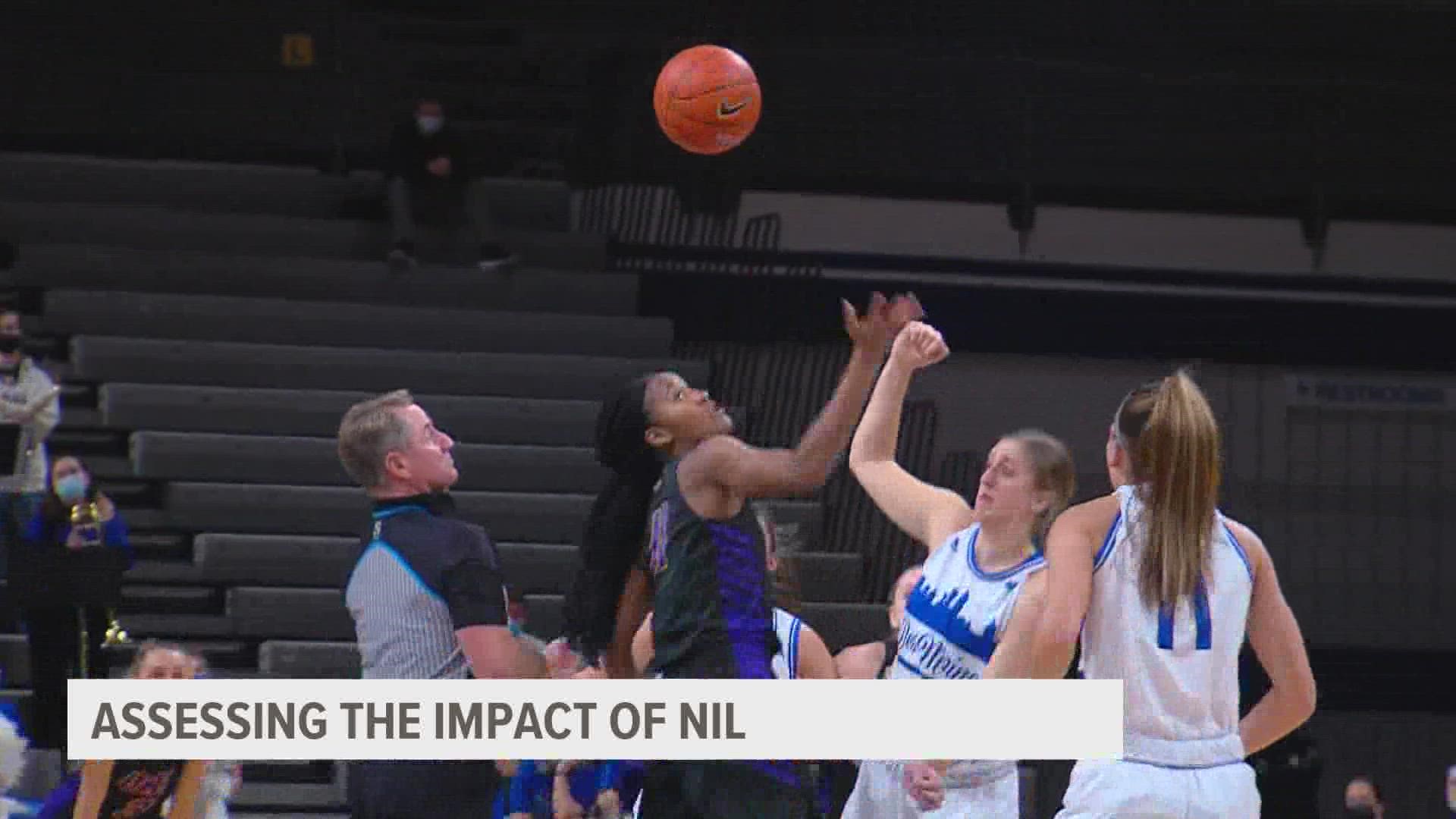DES MOINES, Iowa — Last summer, college athletes were officially allowed to cash in on their name, image and likeness.
But a year later, the lines have been become blurred when determining what exactly is considered an NIL deal.
"Name, image and likeness is the right to publicity. It is being a social influencer. It is going on a commercial, signing autographs, selling merch, doing camps, giving lessons," said Peter Schoenthal, NIL expert and CEO of Athliance. "It is not receiving $10,000 because you're good at football."
But it quickly turned into a recruiting tool. Some in the industry say that certain programs are using potential NIL earnings to lure recruits and transfers.
According to Schoenthal, that's against NCAA rules.
"I can't give you money to go to my school or stay at my school. No pay for play. I can't give you $100 for scoring a touchdown. There's got to be a quid-pro-quo. You got to actually do something to earn the money. So those are the three main rules that we're dealing with," Schoenthal said.
Iowa Athletics Director Gary Barta has voiced concerns about NIL deals being used to gain an unfair advantage.
"My hope is that some of those schools, if they are doing it inappropriately, the NCAA will be able to penalize them, and that would probably slow down some of those who do decide to cheat," he said.
Schoenthal believes that, in order to stop any rule-breaking NIL activities, some type of regulation is needed.
"In order for this to work and in order, for any business to work, there has to be uniform legislation that is equally enforced to all so there's competitive balance and right now we don't have that," Schoenthal said.
According to Schoenthal , it will take three or four years to get a clear picture of the future of NIL. Even student athletes can get confused with the constant evolution NIL deals undergo.
While NIL empowers student athletes, it can also make them vulnerable to being taken advantage of, so it's important for student athletes to use caution when making deals to avoid trouble.
To do this, Schoenthal has one message: make sure you're doing everything by the book.
"The best way to do that is to disclose your deals because compliance officers are the ones that are supposed to know and do know the rules and they can guide you in the right direction," he said. "Because the last thing you want to do is violate your eligibility, get in trouble with your school or get in trouble with the state or federal government because of tax issues."
For better or worse, NIL has changed college sports as we know them.

